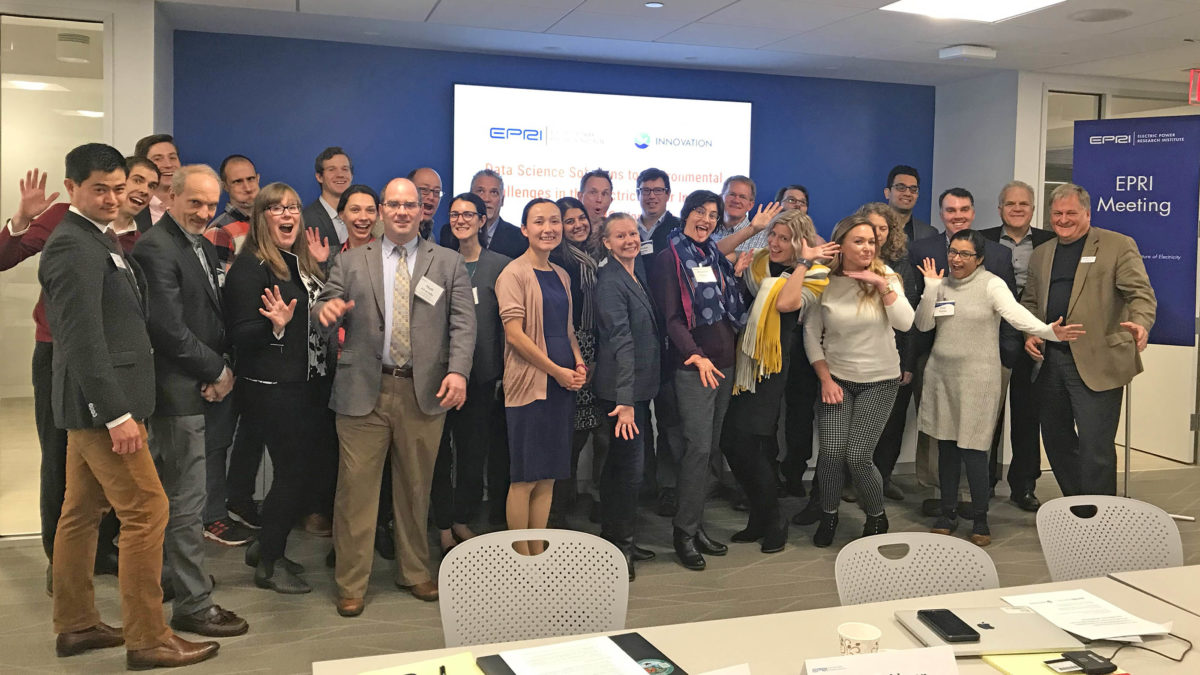Electricity powers human civilization — coursing through our cities and landscapes to energize devices and infrastructure, from our skylines to our fingertips. But like most human endeavors, production processes for electrical power can impact Earth’s natural environment: the byproducts and emissions of power plants can impair water and air quality; transmission lines may spark fires in the wildland; even renewable energy systems such as wind turbines can harm wildlife species.
Since the advent of environmental regulations in the United States, actors from all sectors — industry, government, academia, and non-governmental organizations — have sought technological and policy solutions to balance electrical power security and environmental stewardship. Two such players in this conversation today are the Electric Power Research Institute (EPRI) — an independent organization created in the wake of the Great Northeastern Blackout of 1965 and a respected voice bridging industry members and the public interest ever since — and the Environmental Policy Innovation Center (EPIC) — a lithe team of inter-sector facilitators founded in 2017 by Tim Male PhD, formerly of the Obama White House Council on Environmental Quality.
As environmental challenges continue to increase in scale and complexity, EPRI and EPIC have a shared interest to introduce industry leaders and policymakers to 21st century tools and solutions. And chief among these is data science.
The Story
Artificial intelligence, machine learning, supercomputers, cloud computing, predictive modeling — data science as a whole is certainly nothing new to the energy industry nor the field of environmental management. However, EPRI and EPIC wanted to bring all three disciplines together to create a new conversation.
The two organizations complement one another nicely: EPRI counts major U.S. utilities as part of its member network, able to bring industry players to the table to discuss paradigm shifts and share best practices; EPIC specializes in “shortening the way” towards wide-scale adoption of conservation solutions, identifying possible improvements to regulations, policies, and markets. Together, EPRI and EPIC stand poised to ignite new dialogue across expertise and applications.
To begin that dialogue, EPRI and EPIC began a series of stakeholder interviews in early 2019 to collect case studies of data science in environmental applications related to the electric power industry. Encouraged by these early findings, EPRI and EPIC next sought to host a pilot workshop event — where leading minds from utilities, vendor companies, universities, and government agencies could meet face-to-face and discuss their respective needs and big ideas.
The Process
Even facilitators need facilitators — and I was fortunate to have gotten the call from my friend and fellow Duke Environment alum Becca Madsen, a Senior Technical Lead with EPRI.
At the core of this EPRI-EPIC collaboration was Becca, EPIC Director of Markets Phoebe Higgins, and EPIC Data Science Fellow Kavita Kapur Macleod. The team had already been drafting their desired scope for the pilot workshop, including event agenda, prospective attendees, and modes of audience engagement. Becca, Phoebe, and Kavita all are experienced program managers and savvy organizers in their own right, but they wanted to bring in an outside facilitator to lend further focus and creativity to the workshop design. More importantly, Becca, Phoebe, and Kavita needed to be active participants in the workshop itself — without the distraction of managing run-of-show.
I am grateful that Becca, Phoebe, and Kavita appreciated the value of an independent facilitator — and the importance of activating that facilitator early in the planning process. The workshop — eventually titled “Data Science Solutions to Environmental Challenges in the Electric Power Industry” and held at EPRI offices in Washington DC — was a fantastic opportunity to pair my creative eye with my technical training in environmental management. To orient the process, I first led the team through my strategic planning template, refining objectives and outcomes and setting the event’s tone. We then streamlined the two-day workshop agenda, maximizing for informal networking while incorporating multiple modes of learning and engagement — spanning presentations, fast-pitches, breakout discussions, moderated panels, and group sharing.
Our hard work paid off — and the workshop was a joy to facilitate. As emcee, my overarching goal was to foster a feeling of camaraderie and familiarity for this group of 35 professionals, who represented institutions spanning American Electric Power, Duke Energy, Galago, Jupiter Intelligence, LimnoTech, PARC, Sonoma Technology, Lawrence Berkeley National Laboratory, NASA DEVELOP, University of Chicago — and yes, even Duke University. Taking care to make all feel welcome, I researched every attendee’s online C.V., weaving trivia about their expertise, travels, hobbies, and alma maters into my speaker introductions, group conversation icebreakers, and even table seating arrangements. My philosophy was to highlight unexpected connections and shared passions across this room of dynamic, highly accomplished experts — keeping the atmosphere a “fun formal” at all times and letting brilliant people do what they do best, naturally.
In my post-project surveys, I often include the question “Did you have fun?” Most satisfyingly after this EPRI-EPIC workshop, nearly every single respondent replied: “Yes!” — exclamation point included. This is a wonderful compliment I take to heart, and I am again grateful to Becca, Phoebe, and Kavita for trusting me to add my brushstroke to this important dialog — one that promises to pave way for new collaborations and solutions for our energy security and ecological health.
Finally, I would be remiss without acknowledging EPRI Senior Event Planner Tammi Clark for her nimble support throughout this project — from remote communications during early stages to onsite logistics during the workshop week. Planning professionals are the unsung, behind-the-scenes heroes of any complex event, and our success owed much to Tammi’s seasoned intuition and infectious calm.
— Ben Young Landis
Gallery

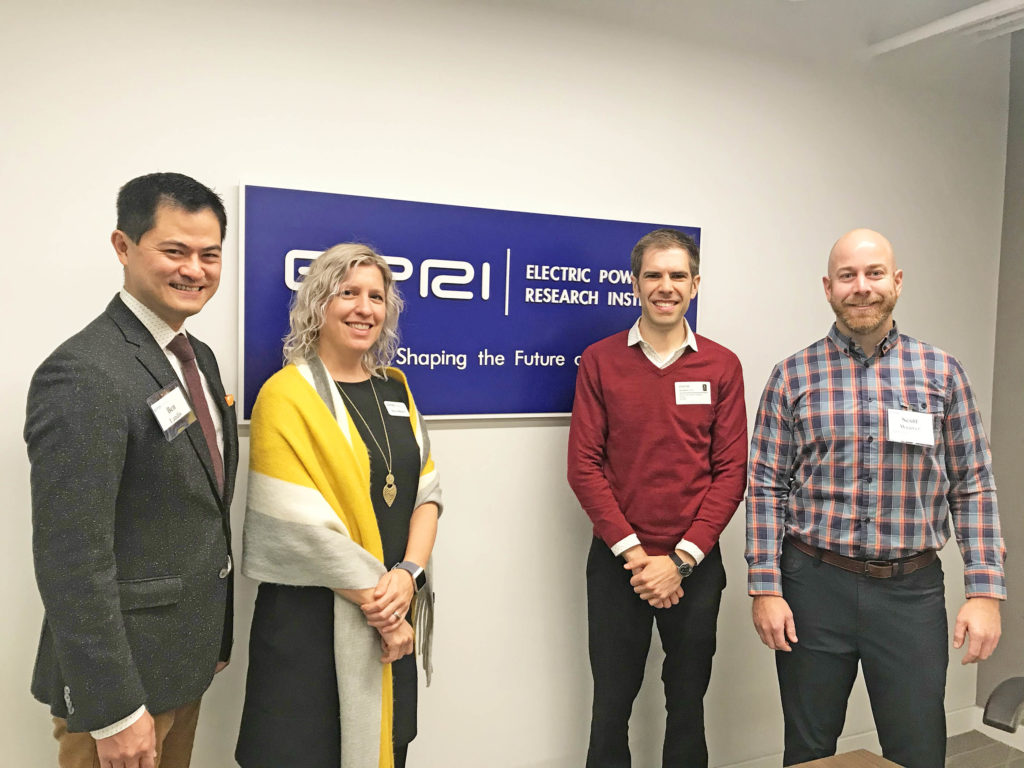
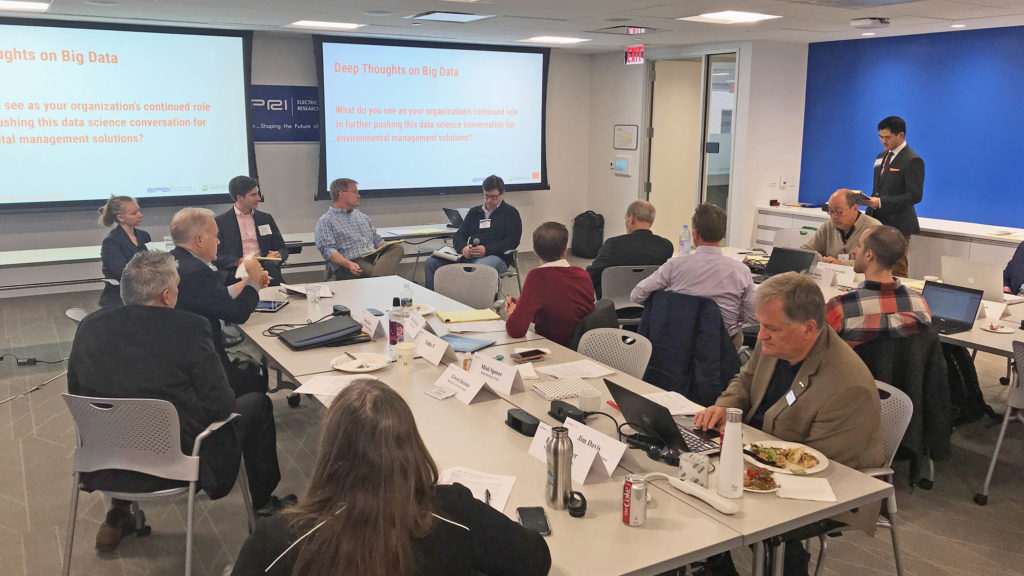
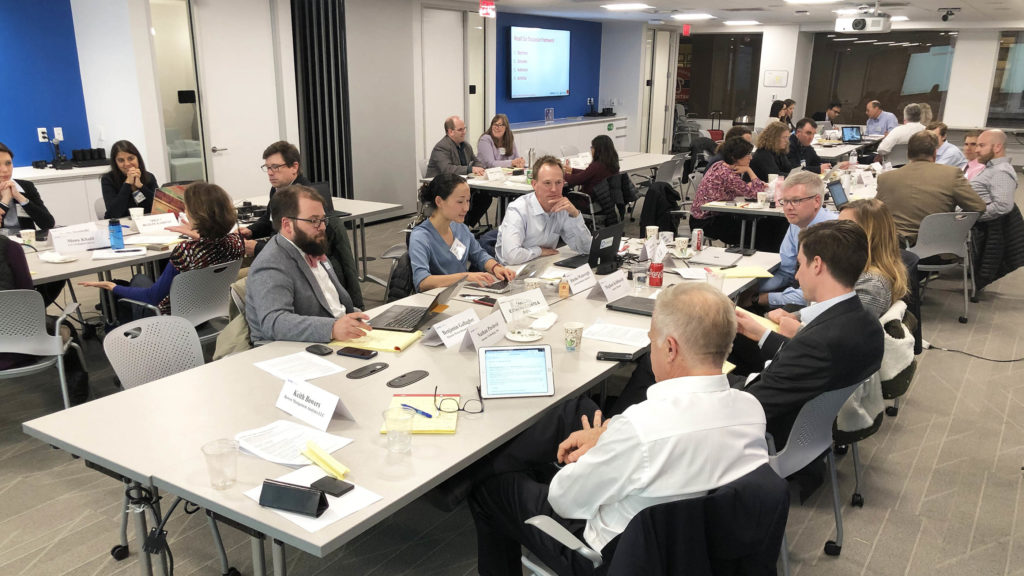
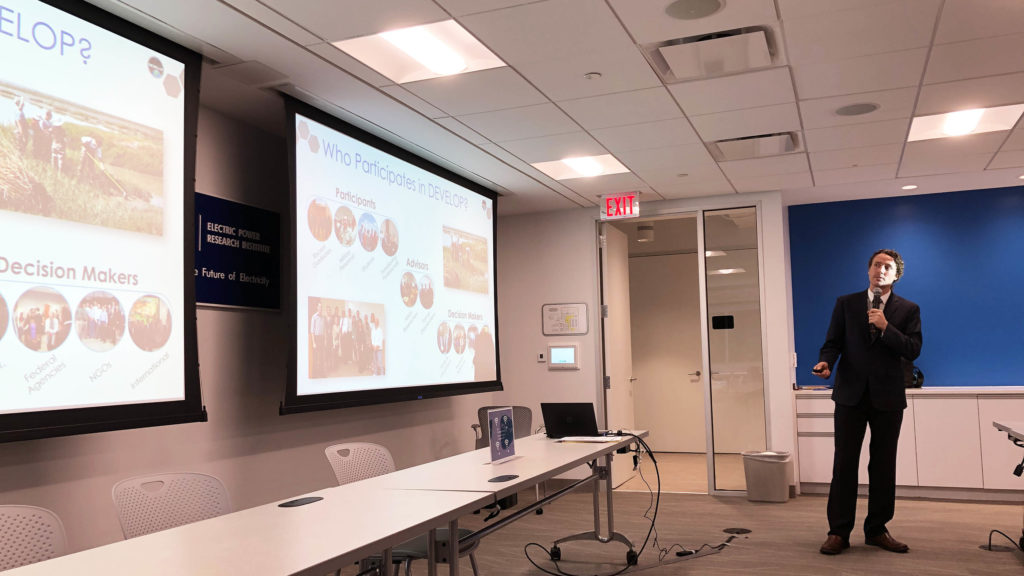
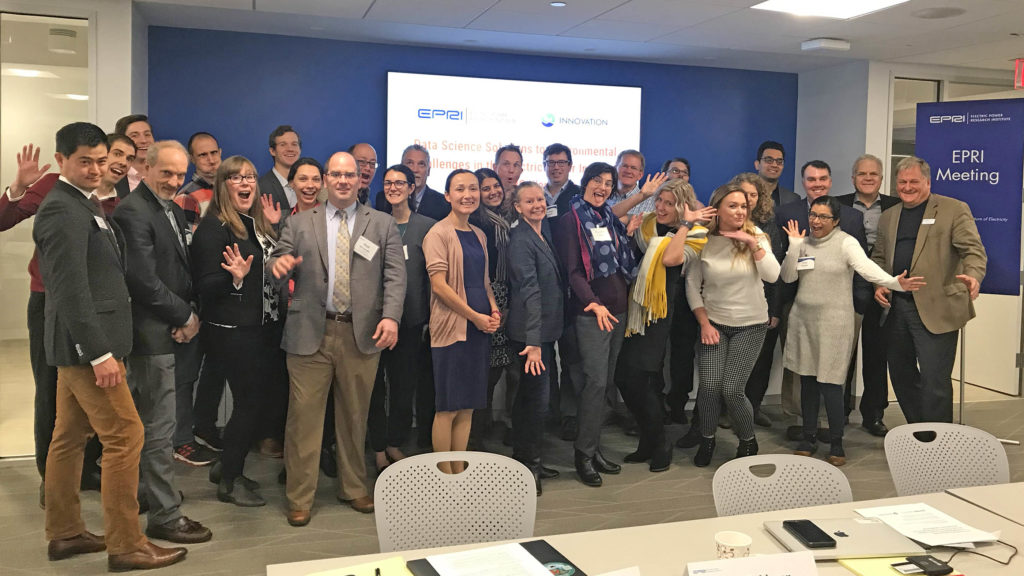
In Their Words
Ben is a gifted event planner and highly effective workshop facilitator. He was able to corral our team, the workshop participants and a lot of subject matter very efficiently and with grace. I would recommend him highly.
Phoebe Higgins, Director of Markets, Environmental Policy Innovation Center
Lasting Impact
Another edition of the EPRI-EPIC workshop was held in 2020. Working once again with Becca Madsen, Phoebe Higgins, and Kavita Kapur Macleod, I converted the entire format to a virtually hosted experience necessitated by the coronavirus pandemic. “Data Science Solutions to Regulated Species Challenges in the Electric Power Industry” was successfully hosted in November 2020 over two days using a mix of pre-recorded sessions, live panels, and networking breakouts. Stay connected on this continuing effort at: www.epri.com/envdatasci
Credits
Clients: Electric Power Research Institute (EPRI) / Environmental Policy Innovation Center (EPIC)
Websites: www.epri.com / www.policyinnovation.org
Delivered: September-November 2019
Creative Direction: Becca Madsen (EPRI), Phoebe Higgins (EPIC), Kavita Kapur Macleod (EPIC), Ben Young Landis
Program Management: Becca Madsen (EPRI), Phoebe Higgins (EPIC), Kavita Kapur Macleod (EPIC)
Additional Copywriting and Design: Ben Young Landis
Lead Facilitator and Emcee: Ben Young Landis
EPRI Event Staff: Tammi Clark, Ana Martins
